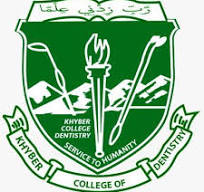ASSOCIATION OF TRAUMATIC BRAIN INJURY WITH MIDFACE FRACTURES IN PATIENTS REPORTING TO ORAL & MAXILLOFACIAL SURGERY, KHYBER COLLEGE OF DENTISTRY
DOI:
https://doi.org/10.33279/jkcd.v7i01.225Keywords:
Midface fractures, Traumatic brain injury, Facial fracturesAbstract
Objective: To determine the association of traumatic brain injury with midface fractures in patients reporting to oral and maxillofacial surgery, Khyber College of Dentistry, Peshawar.
Material and Methods: This retrospective cross sectional study was carried out at Khyber College of Dentistry, Peshawar during a period of one year (Aug 2014-Aug 2015). A carefully structured proforma was used to obtain data from the trauma patients reporting to the facility. The aim was to assess the evidence of traumatic brain injury in the presenting patients and its association with fractures of the midfacial complex. The collected data was analyzed using SPSS version 22.
Results: 124 patients reported to the Oral and Maxillofacial Department of Khyber College of Dentistry with mid face and zygomatic bone fractures. Road traffic accident was the most common cause of trauma (87.4%) The types of fracture were documented as isolated zygomatic complex fractures, Lefort I,II and III as well as different combination of all of these fractures. 71 (57.3%) patients presented with zygomatic complex fracture. The diagnosis for post traaumatic brain injury was made upon the need of neurosurgical consultation and intervention. Total 4 patients presented with skull fracture and pneumocephalis out of which only 2 were reported with skull fracture and pneumocephalis at the same time. Only 8 patients needed neurosurgical intervention, out of which 1 patient underwent surgical intervention while the rest were managed conservatively.
Conclusions: It was concluded that with midface fractures the risk for potential brain injury was relatively low.
Downloads
Published
How to Cite
Issue
Section
License
Copyright (c) 2016 Tariq Ahmed, Wardah Farhat, Nigam Sattar, Muslim Khan, Atta ur Rehman, Shuja Riaz Ansari

This work is licensed under a Creative Commons Attribution-NonCommercial-NoDerivatives 4.0 International License.
You are free to:
- Share — copy and redistribute the material in any medium or format
- Adapt — remix, transform, and build upon the material
- The licensor cannot revoke these freedoms as long as you follow the license terms.
Under the following terms:
- Attribution — You must give appropriate credit , provide a link to the license, and indicate if changes were made . You may do so in any reasonable manner, but not in any way that suggests the licensor endorses you or your use.
- NonCommercial — You may not use the material for commercial purposes .
- No additional restrictions — You may not apply legal terms or technological measures that legally restrict others from doing anything the license permits.










